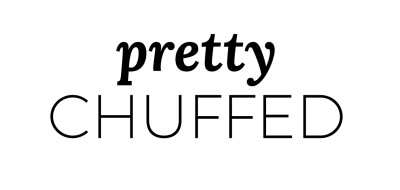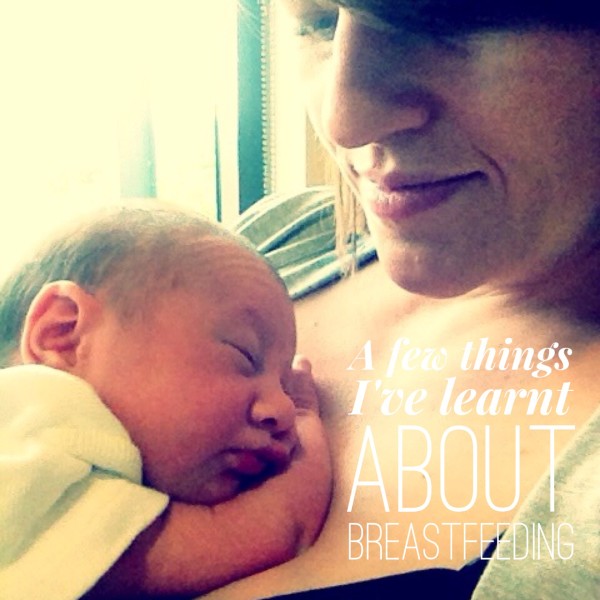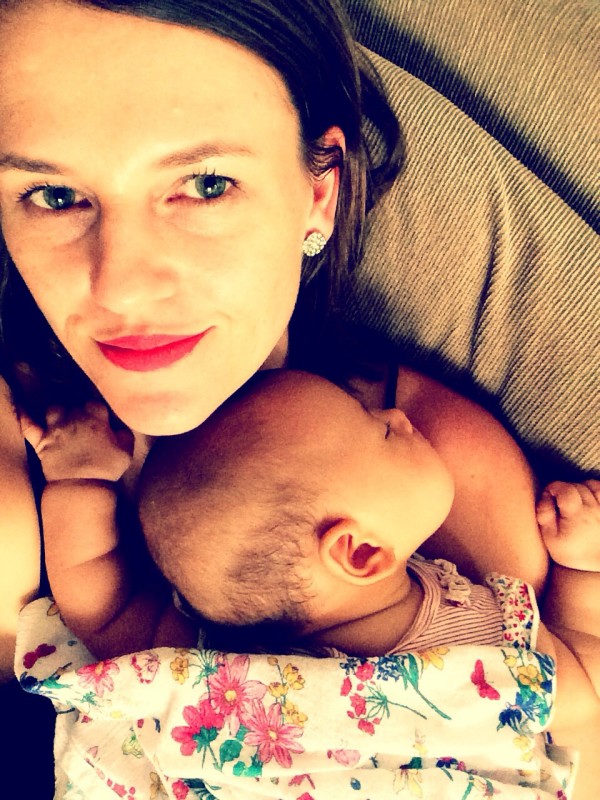It was about 1am one morning when I received the message: “Is it supposed to hurt like this?!” It was from another mum I was friends with on Facebook. I replied something like: “Yes, it freaking kills. That’s what they don’t tell you in the hospital. But, it does get easier.” The message was about breastfeeding, and from a new mum to another, it was the absolute truth, and hopefully what she needed to hear that morning. You see, the one thing that took me by complete surprise after Hannah was born was that although breasfeeding was ‘natural’, it does not necessarily come naturally and it can be bloody hard work.
The best piece of advice (although daunting, at the time) I received in those early days in regards to breastfeeding was actually from my GP, who said it can take at least 6-12 weeks to establish breastfeeding properly. I think if I had just listened to the advice from the nurses in the hospital before and after the birth I would have considered giving up, had I not heard this, because for me it was so painful. The nurses’ comments of ‘breastfeeding should not hurt’ had me thinking I was doing something wrong, and frankly had me feeling quite depressed. Many nights were spent telling myself that pain is ‘only in my mind’ and holding back tears in the very wee hours of the morning, sleep-deprived and in deep pain. But, with the words of my GP in my mind, I stuck it out, and sure enough, when Hannah was around six weeks old, it just became easy for us. I certainly don’t take this for granted, and I felt extremely lucky to be able to provide for my baby in this way.
Happily, we breastfed exclusively for 4.5 months, we then introduced solids, and I continued to breastfeed until she was 16 months old. Although the plan was to wean at 12 months, we night weaned at 12 months and then weaned completely at 16 months, surprisingly easily (my husband and I had a night away at an interstate wedding, baby-free, and on returning, she seemed to have forgotten all about it!). I will admit that I shed a few tears that weekend, when I knew that her days of needing me exclusively were well and truly over.
As we plan for the birth of baby number two, I am keeping this all in mind and although I’m hoping it will be easier this time, I know that it may not be.
Last month, I attended a morning tea held by Medela – a company familiar with many mums for their world-class breast pumps and bottles – all about breastfeeding. It was there that I heard stories from many other mothers about their experiences with breastfeeding, and noticed that every single mother in attendance had a completely different story. One thing is for sure though, every mother wants the absolute best for their baby and will go to the ends of the earth to try to provide the best nutrition for them. I’m a big believer in breasfeeding, if possible, however I would add that I also believe the mental health of the mother is extremely important. Thus, if you cannot breasfeed for any reason, it should not be the end of the world, and it isn’t. After all, keeping both mother and baby healthy and happy is the key here. At the morning tea, I did learn some interesting facts about breastfeeding though, which I thought I would share here, as some facts were new to me.
One point that stuck with me is there is no real ‘normal’ for breastfeeding frequency. Although the most common reason cited by mothers for stopping breasfeeding was that they felt they did not produce enough milk as their baby fed more often than others they knew (or had read about in a baby book), there was actually no real ‘normal’ frequency.
A study at the University of Western Australia* on mothers and their infants between 1-6 months old, found that there were many variations of normal – for example once a baby is growing well a breastfed baby may feed anywhere from 4-13 times in 24 hours. (*Study conducted by Jackie Kent and the Hartmann Lactation Research Group.)
The study also found that boys eat more than girls and two-thirds of babies drank 20% of their milk between 10pm and 4am.
Research on breastmilk itself has found that breastmilk is unique to the breastfed baby; and recently, it has been found that breastmilk contains stem cells.
I also was interested to hear about Medela’s work in Bangladesh. In Bangladesh, the infant mortality rate is high and many mothers, especially those in the garment factory industry, are often forced to return to work when their baby is two months old, and work 10-14 hour days, 5-6 days per week. This, coupled with the high temperatures and humidity, and poor electricity supply (which make expressing difficult) means that many mothers are also forced to stop breastfeeding when they return to work. As part of a global project, Medela has donated 20 Lactina breast pumps, 200 handheld pumps and also have provided help via an education and support officer. Through the same project, the University of Toronto has provided a pasteurisation device which means expressed breastmilk can be stored for longer periods in the Bangladeshi climate. A wonderful project indeed.
After I returned from the morning tea, I had a think about how sad (and perhaps how indicative it is of motherhood in general) it is that many mothers stop breastfeeding because they think they are not producing enough milk. It’s not because they necessarily want to stop, it’s because they’re worried about their baby’s nutrition, and they feel they can’t offer enough. I think this pretty much sums up motherhood: We always seem to think we’re doing a bad job, when in fact most of the time we’re doing just the opposite.
If you’d like more information on Medela or breastfeeding ‘norms’ this page is a really good place to start.
(Thank you to Medela for inviting me to the morning tea. This post has been part sponsored by Medela, however all words and thoughts are mine. As a side note, and to be completely honest, I’m putting the gift voucher supplied towards a Medela Swing pump, which I desperately wanted when Hannah was a baby, however didn’t get around to purchasing!)
Did you breastfeed? How did you find it?


